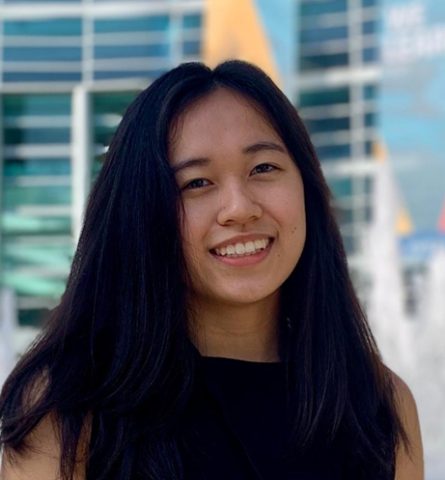Emily Cheung – MWC Endowment Scholar
1st Year Scholar, PhD candidate
Biomedical Engineering
George Washington University
Research:
To develop a novel therapy that provides targeted activation of specific neuron populations in the brain to mitigate progression of cardiovascular diseases that have higher prevalence in women. I use high-speed optical mapping techniques to measure cardiac conduction and electrophysiological properties, and examine the efficacy of this treatment on failing hearts.
How Will Your Research Benefit Society?
Cardiovascular disease is the leading cause of death worldwide. Identifying novel therapies can increase longevity, improve quality of life, and alleviate the immense burden it places on individuals and healthcare systems. My research focuses on developing a treatment for heart failure with preserved ejection fraction, which impacts about 50% of all heart failure patients and has a higher prevalence in women. There is high translatability of this work into the clinic, so I am hopeful that this research will provide lifesaving treatment for women.
How will an ARCS Award Benefit Your Research?
An ARCS award will allow me to build upon my research and explore aspects of heart failure that affect organ systems beyond the heart. Receiving an ARCS award would provide me with funding to investigate the mechanics of neuroinflammation in heart failure and assess the potential of our innovative treatment to prevent or alleviate inflammation of brain regions. Furthermore, the ARCS award would allow me to connect with a broad network of incredible ARCS scholars and industry leaders in science and technology, whom I could look to for support and mentoring as I continue to grow as a researcher and scientist.
Career objectives:
After completion of my PhD, I plan to pursue a career in the biotechnology industry, where I can apply techniques and skills learned during my doctoral studies to new applications. One aspect that I am particularly interested in is brain computing interface technology. I find the brain such a fascinating organ and am excited to design and test technology that can be used to better understand interconnections between the brain, the origins of neurodegenerative diseases and ways to mitigate them, and if and how brain functions can be used as indicators of overall health. Lastly, as a graduate teaching assistant, I have found a passion for teaching, and would like to teach adjunct at universities, sharing my experience and expertise in the biotechnology field with the next generation of scientists.

